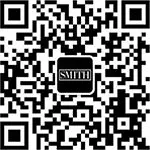Smith Names Connie Chung Vice President of Accounting, APAC
Connie will lead the company’s financial administration in the Asia-Pacific region and ensure adh...
Intel’s recent CES announcement that it has achieved its goal of becoming conflict-free by 2016 has been a high-profile new point in one of the most complex conversations currently going on in the electronics supply chain. Ever since the passing of 2010’s Dodd-Frank Act (Section 1502), the question of how to address conflict minerals in our tech products has been simmering. Recently, it’s become more and more obvious that corporate social responsibility of the sort conflict mineral reporting demands is no longer optional – it’s a necessary part of doing business in the modern world market.
Intel and other companies in our industry are leading the way.
Put into effect in 2010, the Dodd–Frank Wall Street Reform and Consumer Protection Act requires US-listed companies to publicly report whether the minerals they use in their products are being used to fund military groups and fuel violence and human rights abuses in the Democratic Republic of the Congo (DRC). The DRC is an important source of minerals like gold, tin, tantalum, and tungsten – often referred to as 3TG – that play a vital part in laptops, smartphones, and many other of the electronics devices that drive our industry. This makes the conflict minerals issue one that touches nearly everyone in our market in some way, from manufacturers to distributors.
In 2014, the first year that US companies were required to submit their conflict minerals reports, we began to see leaders such as Intel, HP, Microsoft, and GE emerge in starting to address this issue, although the challenges inherent in tracking smelter information have made for slow adoption across the board. As of an April 22, 2015 report by humanitarian organization Amnesty International, 79 out of 100 companies analyzed failed to meet the minimum reporting requirements under the Dodd-Frank Act.
In spite of challenges, though, electronics industry leaders are starting to take dramatic steps to ensure their supply chains are fully transparent and traceable.
Intel’s announcement is the most sweeping. Achieving completely conflict-free products has been an ongoing goal for the company, and the Consumer Electronics Show in Las Vegas was where Intel CEO Brian Krzanich announced the company’s success at reaching this milestone in line with its 2016 timeline. Other companies are following closely behind. Apple has stated that only four of its seventy-nine smelters currently lack conflict-free certification – and that it will end its contracts with them if they fail to procure it. Meanwhile, 76% of smelters in HP’s supply chain are either Conflict-Free Smelter Program compliant or are in the process of achieving compliance, and the company has set a goal “for the majority of its 3TG production procurement spend to be DRC conflict free by the end of 2016.”
It’s an arduous process to investigate supply chains from their roots to ensure that only ethically sourced raw materials are going into our smartphones, laptops, and other devices that make our connected homes and lives comfortable. But it’s a necessary one. And – as human rights concerns drive this particular facet of supply chain knowledge and due diligence, it’s important to remember the other motivations that converge on the goal of full supply chain traceability. From humanitarian motivations to the ways full knowledge of products’ material content and sources helps us counter the constant threat of counterfeiting, there are dramatic benefits alongside the challenges of the new era we are moving toward in the global electronics supply chain.
And we all have a part to play in it.
Stay tuned to Smith’s Market Blog and our Twitter (@smithweb) for more industry news and analysis.
Smith Names Connie Chung Vice President of Accounting, APAC
Connie will lead the company’s financial administration in the Asia-Pacific region and ensure adh...
Smith Achieves Global ISO/IEC 27001:2022 Certification
The company’s commitment to information security has been confirmed
Smith Will Exhibit at the RLA EMEA Summit in Amsterdam, Table #150
The company will showcase its tailored supply chain solutions designed to support sustainable rev...
您可通过以下三种方式,轻松关注Smith微信公众号:
